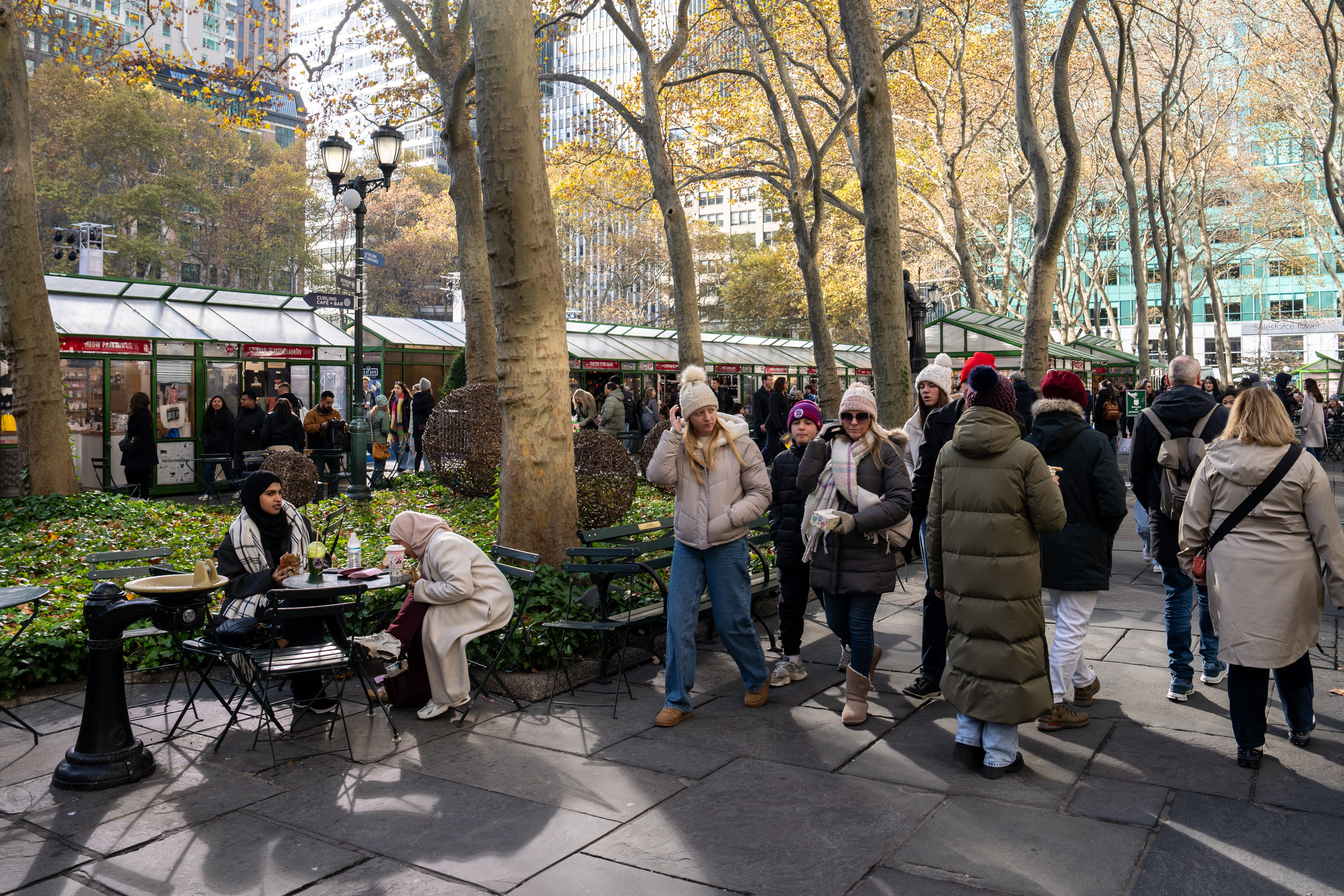Dr. Craig Spencer, the first and only person to be diagnosed with Ebola in New York City, was released from Bellevue Hospital Center Tuesday as the mayor declared both him and the city free of the deadly virus.
The 33-year-old Spencer, wearing a navy sweater and a grin, hugged Mayor Bill de Blasio and the first lady. The hospital staff around him erupted in applause as the young doctor's parents looked on.
"Today I am healthy and no longer infectious," Spencer said.
"Dr. Spencer is Ebola free and New York City is Ebola free," added de Blasio. "It is a good feeling to hug a hero and we have a hero here in our midst."
The NewYork-Presbyterian Hospital/Columbia University Medical Center physician was diagnosed with Ebola Oct. 23 after returning from treating patients in Guinea with Doctors Without Borders. He was the last person known to be infected with the virus in the U.S. and was kept in an isolation unit at the hospital since being taken there with a fever and gastrointestinal symptoms.
Bellevue's Laura Evans, the doctor who led Spencer's treatment, said she thought Spencer's arrival last month was another Ebola drill.
It wasn't, but, she said, "We were ready."
Evans said Spencer played an active part in his treatment decisions and never got disheartened by the potentially grim diagnosis. Instead, he reminded all of Bellevue's hospital staff of the critical Ebola fight abroad, Evans said. She called Spencer a "brave and caring doctor with a great sense of humor."
Local
Spencer's release comes about a week after health officials upgraded his condition from "serious but stable" to "stable" and days after he felt well enough to request an exercise bike and a banjo.
On Tuesday, he thanked the medical team for providing him "an exceptional level" of treatment, support and encouragement, and said that his early detection, reporting and subsequent recovery from Ebola speak to the effectiveness of the protocols that are in place.
"It is important to remember that my infection represents but a fraction of the more than 13,000 reported cases to date in West Africa, the center of the outbreak, where families are being torn apart and communities are destroyed," Spencer said.
The Ebola epidemic in West Africa has killed thousands of people, but not many have been treated in the United States. Besides Spencer, they include American health and aid workers and a journalist who fell ill in West Africa, a Liberian man diagnosed with the virus during a visit to Texas and two nurses who contracted it from him. The man, Thomas Eric Duncan, died; the rest have recovered.
Health officials have stressed that Ebola can only be spread through direct contact with the bodily fluids of an infected person who is showing symptoms. Still, news of Spencer's infection set many New Yorkers on edge, particularly after they learned that he rode the subway, dined in a meatball restaurant and visited a bowling alley in the days before he developed a fever and tested positive.
Neighbors at Spencer's Hamilton Heights apartment building said the doctor followed protocol, and that they were happy to have him home.
"I know people got upset because he went around the city," said Scott Kelson, "but, you know, he came back from doing such good work. Give the guy a break. He did what he had to do."
"We're very glad to have them around here, people who sacrifice the self for the humanity," added Jose Baez. "This is a great pride for the community."
Spencer's fiancee, Morgan Dixon, was released from the hospital two weeks ago and returned to the couple's apartment. She remains under quarantine at home as a precaution and has not developed any signs of the illness, officials have said. If she passes a temperature check Friday, the quarantine order will be lifted. Two friends who initially were quarantined are being monitored, along with nearly 300 other people in the city, health officials said last week. .
The vast majority of those being monitored arrived in New York City within the past 21 days from Sierra Leone, Liberia and Guinea, the three West African countries most affected by the Ebola outbreak.
Others being monitored include about 100 Bellevue staff members involved in his treatment, the lab workers who conducted his blood tests and the FDNY EMTs who transported him to Bellevue last month. None have showed symptoms and are being checked on out of "an abundance of caution," officials have said.



